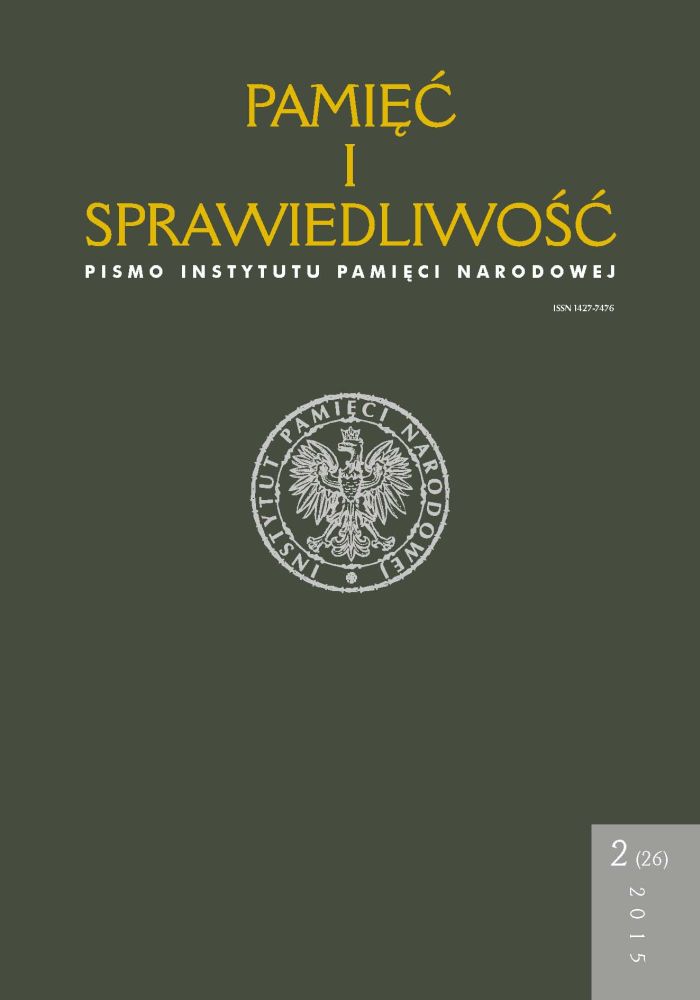Polityczna Szkoła Wojskowa w Leningradzie dla działaczy Komunistycznej Partii Polski. Zarys genezy i funkcjonowania (1925–1932)
Political Military School in Leningrad for the activists of the Polish Communist Party. Origins and functioning (1925–1932)
Author(s): Elżbieta Kowalczyk-HeymanSubject(s): Political history, Social history, Interwar Period (1920 - 1939)
Published by: Instytut Pamięci Narodowej
Keywords: Communist movement; the Polish Communist Party; the Polish Communist Workers’ Party; International; Comintern; the Polish Communist Party Representation at the International Executive Committee
Summary/Abstract: The article concerns the origins and activities of the Political Military School for the activists of the Polish Communist Party in Leningrad. So far, the subject of military education for the Polish Communist activists in the USSR in the interwar period has been poorly recognized, due to difficult access to some Russian archives, mainly the Federal Security Service archive and military ones. When the political situation in Europe had already stabilised, on 25 February 1925 Politburo (political office) of the All-Union Communist Party (Bolsheviks) announced a draft normative order concerning the liquidation of the Soviet intelligence diversionary groups operating on the Polish territory. Such a step of the Soviet authority was forced by the political situation in Europe. Thus, the Soviet diversionary groups that significantly transgressed the operational standards of intelligence activity, were withdrawn from Poland. USSR government and party authorities decided to use the Communist International (Comintern) troops for their own purposes, including intelligence. On 8 March 1925 a very important document appeared, this time signed by the Comintern Executive Committee. It was the Comintern’s response to the All-Union Communist Party (Bolsheviks)’s normative order. It concerned the so-called “war work” and expressed the need to extend the communist party’s activities to the army, gendarmerie and police in a number of countries, particularly those which are of strategic importance for the USSR, namely Germany, Czechoslovakia, Bulgaria and Poland. Following the resolution of the Comintern Executive Committee, the Communist parties operating in those countries were ordered to create war branches/ departments, or military departments. Thus the idea of political military schools for the representatives of these countries was born. A project to create a several month Political Military School for Polish Communists became real when the Comintern Executive Committee’s Department for Agitation and Propaganda, in accordance with earlier provisions and after obtaining a Central Committee All-Union Communist Party (Bolsheviks)’s approval, filed a project to the extended Plenum in the spring 1925 to create six central schools. The decision of the Comintern Executive Committee Presidium was adopted on 6 May 1925. The school opened on 1 October 1925 in Leningrad, where it remained until 1932.
Journal: Pamięć i Sprawiedliwość.
- Issue Year: 27/2016
- Issue No: 1
- Page Range: 309-326
- Page Count: 18
- Language: Polish

